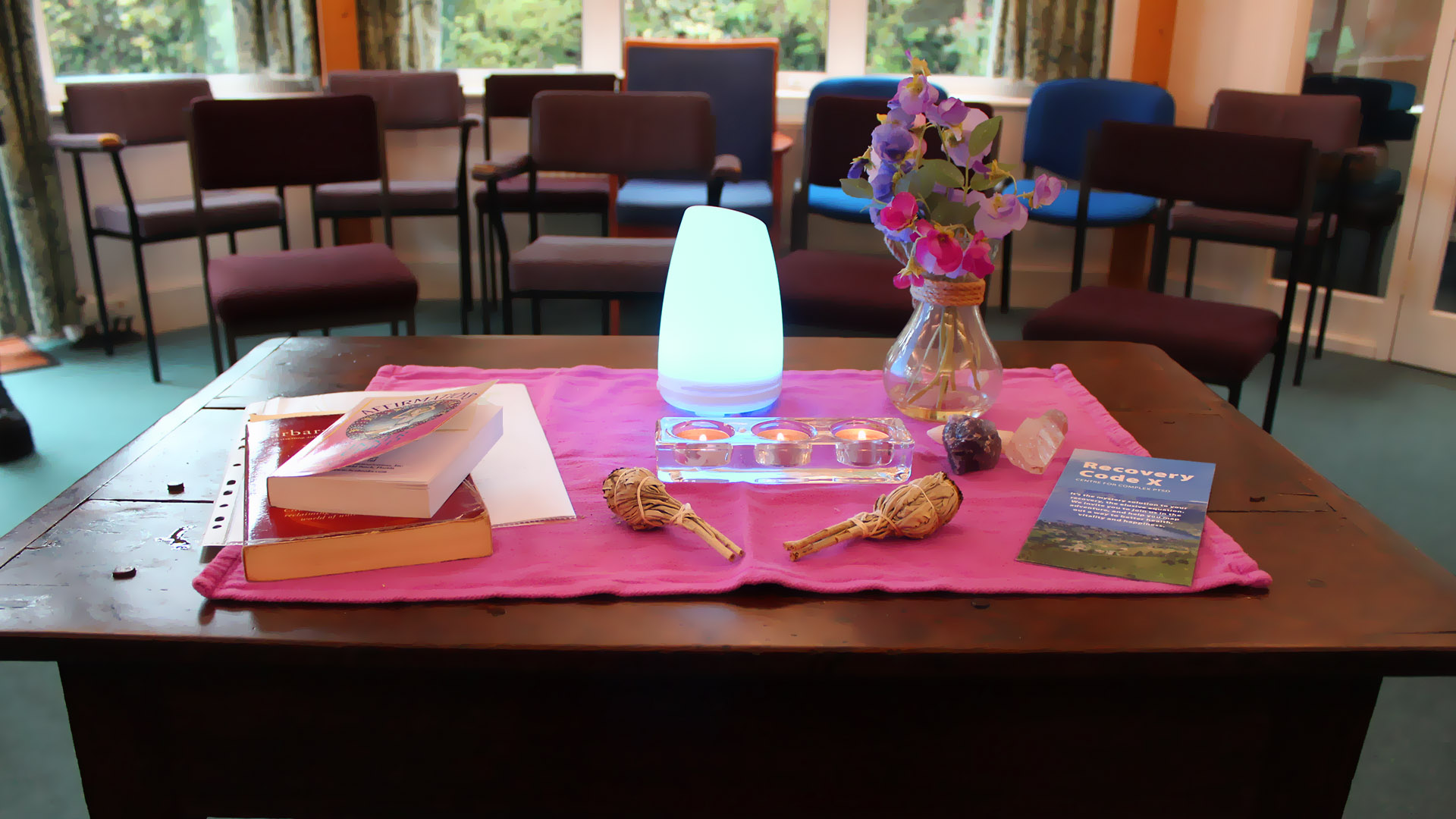

Chat 'n' Chill Online Peer Support Group
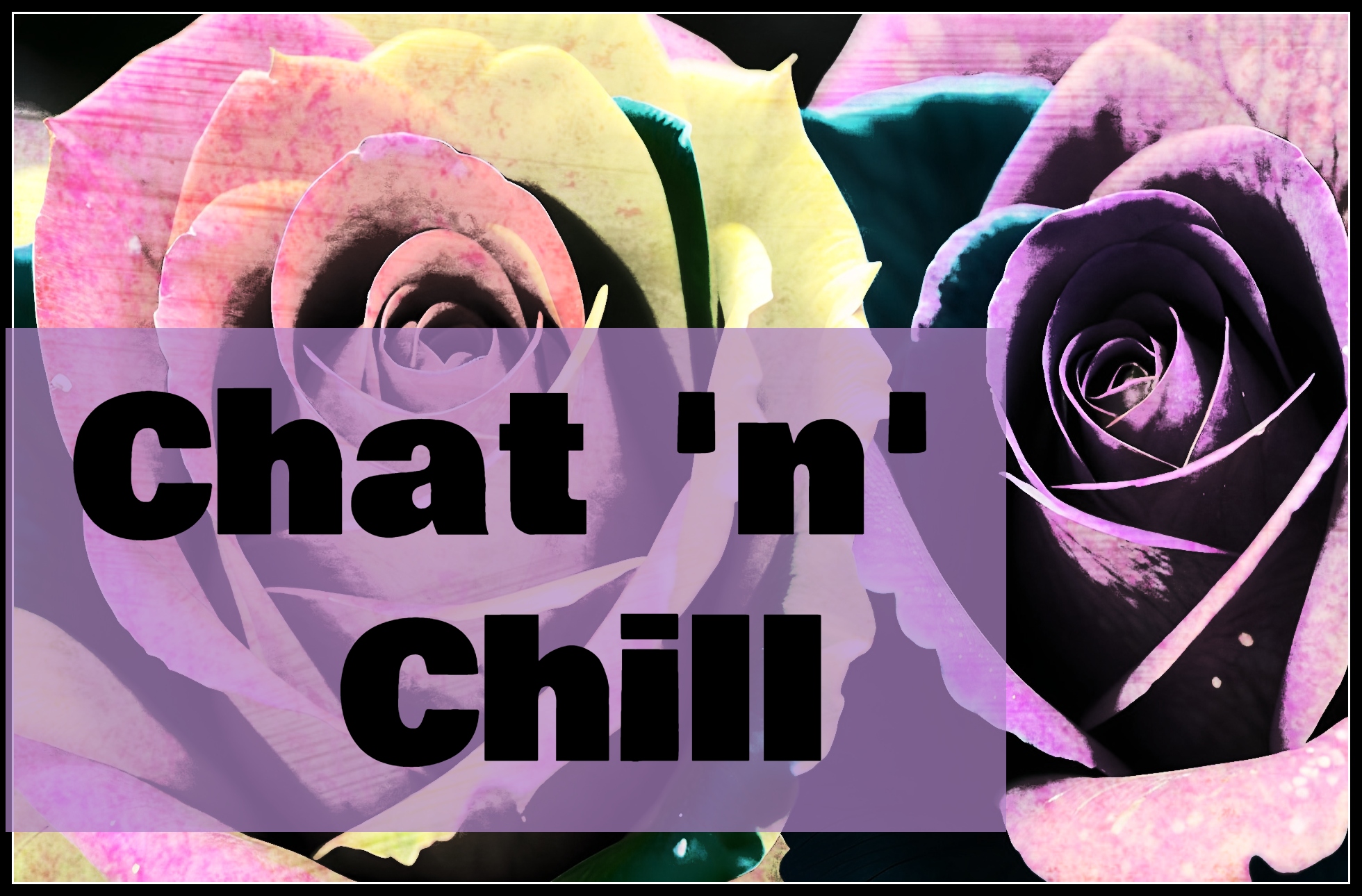
REGISTRATIONS ARE CLOSED
Frequency: Monthly sessions
Course duration: 6 months
Dates: See above.
Venue: Zoom
Time: 6.00pm - 8.00pm
Cost: FREE
Duration: Two-hour sessions


I have had all types of therapy: CBT, psychodynamic, counselling, it all left me feeling like I was wilfully refusing to fix myself. My trauma was so deeply engrained all I needed was compassion, empathy and a safe space to explore what my trauma had done to me. No therapist ever mentioned how I lived in flight, fight, freeze, fawn response and that I was ruled by hypervigilance or that I was trauma bonded to my abusers, so spent my life trying to fix everybody in order to feel safe. I searched my whole life to understand what was wrong with me, and once I discovered myself, that I had CPTSD and found Recovery Code X I found a flicker of hope.
The Chat 'n' Chill group is the only place where I have felt safe and felt understood. If I'd found this support in my younger years I think my life could have turned out differently. I wish this sort of support could be rolled out nationally. It would change lives, I have no doubt. Lots of people deal with some level of trauma and we should understand it as a society. Recovery Code X is a beacon of hope.
~ ANON
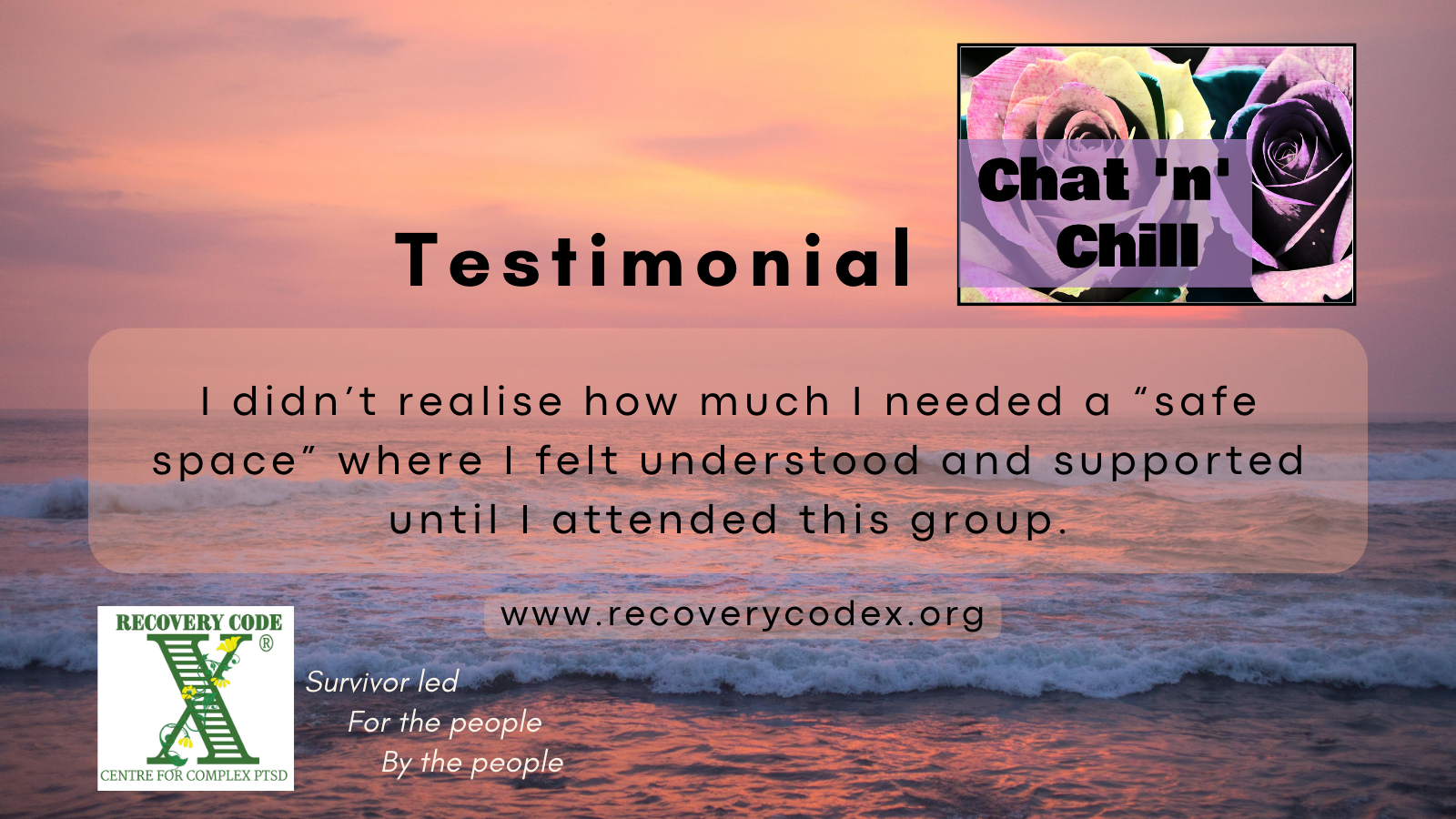
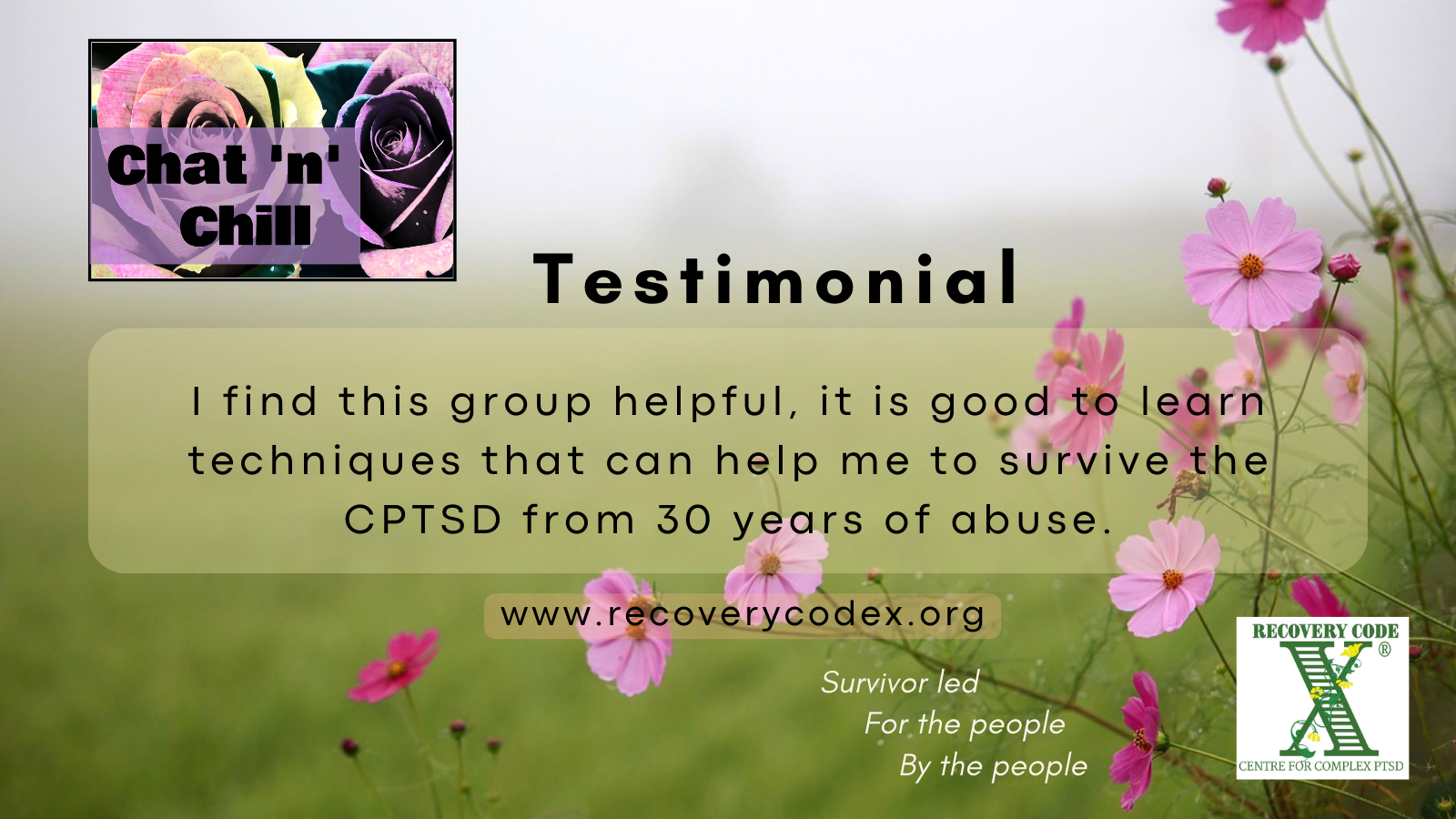
Is this group for me?

Chat 'n' Chill could be the group for you if:
You're self-identifying or diagnosed with mild to moderate Complex PTSD and grew up in a traumatising environment, where there was abuse, and you suffered abusive relationships as an adult.
You would like to meet a friendly group of other women with similar experiences, and reduce the isolation.
You're looking for a safe place to share progress on your healing and recovery.
Or you'd like to just “be”, listen and gain some insights and coping skills.
| |
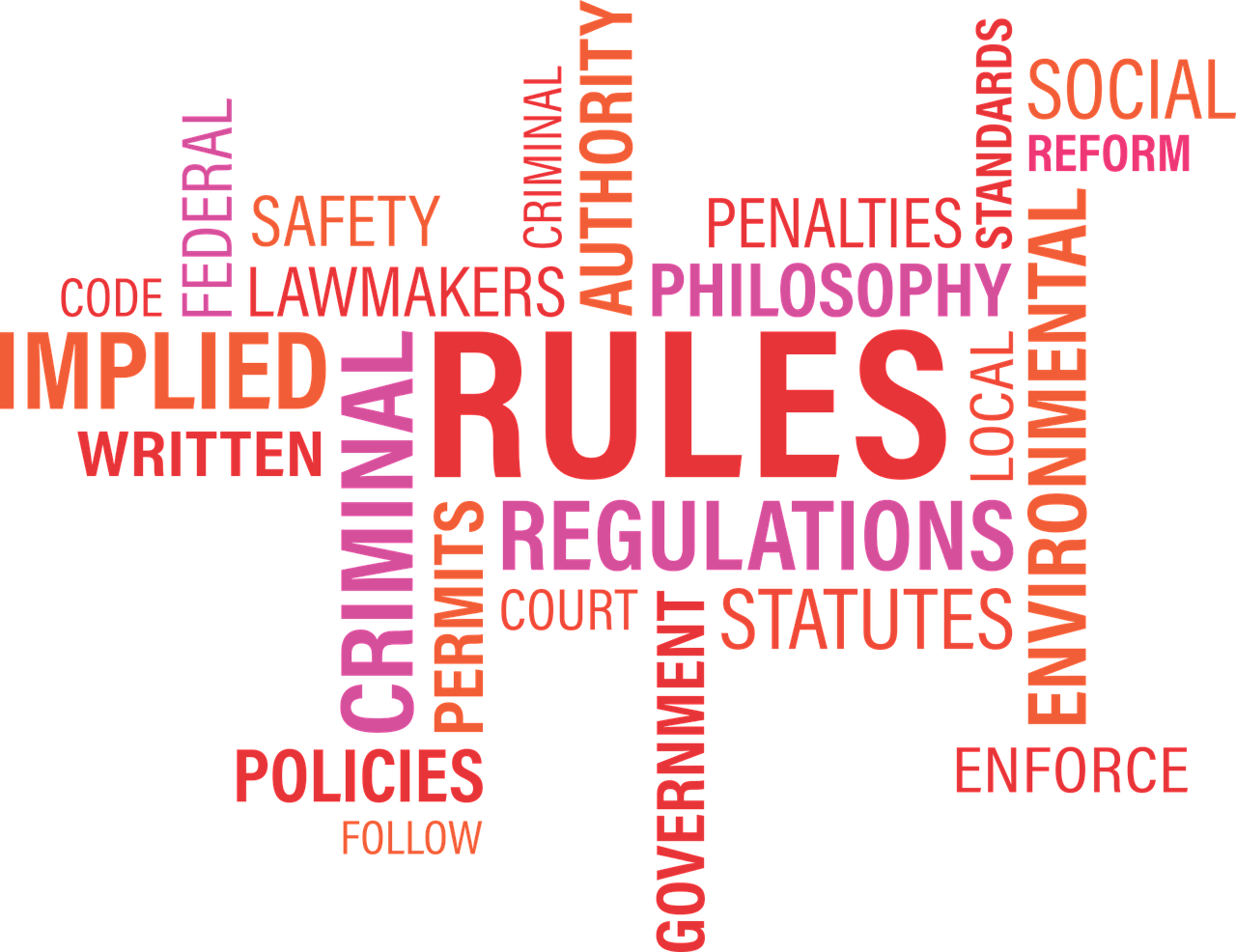
Peer Support Group Agreement
1. Confidentiality
During a Chat ‘n’ Chill group session, we take each other into our confidence. Everything said is confidential. What is said within the group, stays within the group. The only exception is if a Recovery Code X group facilitator or volunteer believes that a participant or someone else is at risk of harm.
2. Sharing and discussion
We listen to and respect each other’s views. It is fine to share the impact of traumatic experiences and how these have made you feel, but we ask you not to share details of the abuse in the group.
3. Creating a safe space
We don’t judge each other, make personal comments or give advice. Sensitivity and compassionate behaviour are fundamental to creating a safe space for all.
4. No need to speak
We don’t want anyone to feel left out of discussions, but if you want to just listen and ‘be’, that is fine too.
5. Drugs and alcohol
If you attend a session under the influence of alcohol or drugs, one of the group facilitators will have to ask you to leave. Medication prescribed by a doctor is acceptable.
6. Friendships
If you decide you would like to contact a group member outside the group, you have to obtain their permission. When friendships develop, each party extends permission to contact each other both implicitly and explicitly.
7. Privacy
You need to be in a quiet place where you will not be disturbed. All mobile phones must be switched off at the start.
8. Anonymity
During sessions, it is recommended that only first names are used. Even a pseudonym is okay.
| |
Not sure? Our FAQ might help.
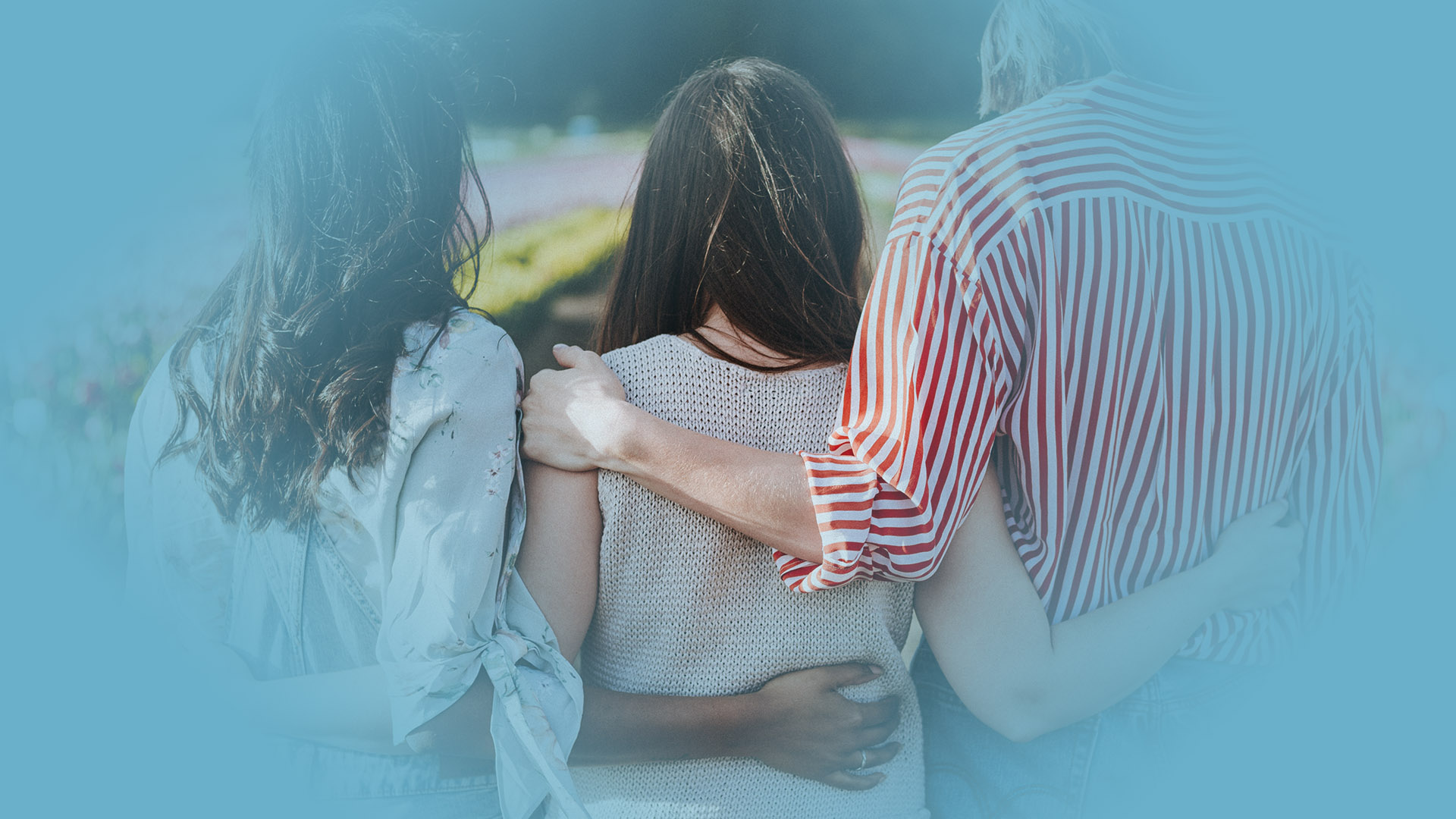
 Click here for our guide to frequently asked questions.
Click here for our guide to frequently asked questions.
